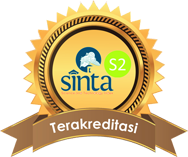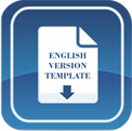POGIL-Based Learning Tools to Improve Critical Thinking Skills and Self-Efficacy on Salt Hydrolysis Material
DOI:
https://doi.org/10.15575/jtk.v8i2.27331Keywords:
critical thinking skills, POGIL-based learning tools, salt hydrolysis, self-efficacyAbstract
To carry out a learning process that can improve students' skills, appropriate chemistry learning tools are needed. This research aims to determine the characteristics and feasibility of POGIL-based learning tools, analyzing students' critical thinking abilities and self-efficacy before and after using POGIL-based learning tools. The research method used 4-D development model (Define, Design, Develop, and Disseminate). The subjects were 11th grade science student. Design were used pretest-posttest control group design. Learning tools developed are valid with a percentage of 93.7% in the construction aspect, 90% in the content aspect, and 100% in the language aspect. There was an increase in students' critical thinking skills and self-efficacy after using POGIL-based learning tools with the percentage of students' effective contribution in critical thinking skills being 30.5% and to self-efficacy 69.2% (both showed high contribute). This indicates that POGIL-based learning tools are feasible to improve students' critical thinking skills and self-efficacy.
References
Broman, K., & Simon, S. (2015). Upper secondary school students’choice and their ideas on how to improve chemistry education. International Journal of Science & Mathematics Education, 13(6), 1255-1278. https://doi.org/10.1007/S10763-014-9550-0
Brown, T. L., Lemay, H. E., Bursten, B. E., Murphy, C. J., & Woodward, P. M.. (2012). Chemistry the central science (12th ed.). Illinois: Pearson Education.
Chang, R. (2004). Kimia dasar konsep-konsep inti edisi ketiga jilid 1. Jakarta: Erlangga
De-Gale, S., & Boiseelle, L. N. (2015). The effect of POGIL on academic performance and academic confidence. International Council of Association for Science Education, 26(1), 56-61. Retrieved from https://eric.ed.gov/?id=EJ1056455
Dehghani, M., Pakmehr, H., & Malekzadeh, A. (2011). Relationship between students’ critical thinking and self-efficacy beliefs in Ferdowsi University of Mashhad, Iran. Procedia-Social & Behavioral Sciences, 15(2), 2952-2955. https://doi.org/10.1016/j.sbspro.2011.04.221
Geisinger, K. F. (2016). 21st century skills: What are they and how do we assess them?. Applied measurement in education, 29(4), 245-249. https://doi.org/10.1080/08957347.2016.1209207
Gliem, J. A., & Gliem, R. R. (2003). Calculating, interpreting, and reporting Cronbach’s alpha reliability coefficient for likert-type scales. Midwest Research to Practice Conference in Adult, Continuing, and Community Education, 6(1), 82-88. Retrieved from https://scholarworks.iupui.edu/handle/1805/344
Gupta, T., Burke, K. A., Mehta, A., & Greenbowe, T. J. (2015). Impact of guided-inquiry-based instruction with a writing and reflection emphasis on chemistry students’ critical thinking abilities. Journal of Chemical Education, 92(1), 32-38. https://doi.org/10.1021/Ed500059r
Hadinugrahaningsih, T., Rahmawati, Y., & Ridwan, A. (2017). Developing 21st century skills in chemistry classrooms: opportunities and challenges of steam integration. Proceeding of the 4th International Conference on Research, Implementation, and Education Of Mathematics And Science (4th ICRIEMS): Research and Education for Developing Scientific Attitude in Sciences And Mathematics, 1868(1), Yogyakarta: Universitas Negeri Yogyakarta. https://doi.org/10.1063/1.4995107
Hanson, D. M. (2006). Instructor's guide to process - oriented - guided - inquiry learning. New York: Pacific Crest.
Harsanto, R. (2005). Melatih anak berpikir analitik, kritis dan kreatif. Jakarta: Gramedia.
Ibnu, S., & Fajaroh, F. (2018). Pengaruh POGIL dan verifikasi serta kemampuan awal terhadap hasil belajar kognitif dan keterampilan proses sains siswa. EduChemia (Jurnal Kimia dan Pendidikan), 3(1), 14 - 28. https://doi.org/10.30870/educhemia.v3i1.1843
Jespersen, N. D., Brady, J. E., & Hyslop, A. (2012). Chemistry the molecular nature of matter sixth edition. New Jersey: John Wiley & Sons, Inc.
Kennedy, T. J., & Sundberg, C. W. (2020). 21st century skills. Science education in theory and practice: An introductory guide to learning theory, 479-496. https://doi.org/10.1007/978-3-030-43620-9_32
Lubis, N., & Lubis, A. (2019). Enhancing 21st century skill through teaching model collaboration in indonesian efl classroom. In 3rd Asian Education Symposium (AES 2018), 477-480, Bandung: Universitas Pendidikan Indonesia. https://doi.org/10.2991/aes-18.2019.107
Moog, R. S., Spencer, J. N., & Straumanis, A. R. (2006). Process-oriented guided inquiry learning: POGIL and the POGIL project. Metropolitan Universities, 17(4), 41-52. Retrieved from https://journals.iupui.edu/index.php/muj/article/view/20287
Mu'minin, A. A., Dasna, I. W., & Suharti, S. (2020). Efektivitas POGIL pada pembelajaran kesetimbangan kimia terhadap keterampilan proses sains dan hasil belajar siswa dengan kemampuan awal berbeda. Hydrogen: Jurnal Kependidikan Kimia, 8(1), 29-39. https://doi.org/10.33394/hjkk.v8i1.2659
Perdana, R., Budiyono, B., Sajidan, S., & Sukarmin, S. (2018). Inquiry laboratory: an appropriate learning model for teaching salt hydrolysis in chemistry. Proceeding of the International Conference on Science and Applied Science (ICSAS), 2014(1), Surakarta: Universitas Sebelas Maret. https://doi.org/10.1088/1742-6596/1156/1/012024
Pramesthi, H. N., Ashadi, A., & Saputro, S. (2019). Analyzing scientific approach and problem solving in salt hydrolysis topic. In Journal of Physics: Conference Series, 1156(1), 012024. https://doi.org/10.1063/1.5054473
Rahayu, N. (2018). Pengaruh model pembelajaran POGIL terhadap keterampilan proses sains dan hasil belajar peserta didik di SMP Al-Huda Jati Agung Lampung Selatan. [Skripsi, Universitas Islam Negeri Raden Intan Lampung]. Campus Repository. Retrieved from http://repository.radenintan.ac.id/6330/
Robinson, J.E., McMurry, J.E., Fay, R.C. (2020). Chemistry eight edition. United States of America: Pearson Education, Inc.
Rohmah, D. M., Yuliani, & Azizah, U. (2023). Module based on metacognitive strategies to reduce misconceptions on salt hydrolysis material. Studies in Philosophy of Science and Education, 4(3), 133-142. https://doi.org/10.46627/sipose.v4i3.298
Rotherham, A. J., & Willingham, D. T. (2010). 21st-century†skills. American educator, 17(1), 17-20. Retrieved from https://eric.ed.gov/?id=ej889143
Rusman. (2010). Model-model pembelajaran mengembangkan profesionalisme guru. Jakarta: PT. Raja Grafindo Persada.
Salama, E. S. (2018). Critical thinking as a 21-century skill: conceptions, implementation and challenges in the EFL classroom. European Journal of Foreign Language Teaching, 4(1), 1-12. https://doi.org/10.46827/ejfl.v0i0.2209
Sumintono, B., & Widhiarso, W. (2015). Aplikasi pemodelan rasch pada assessment pendidikan. Jakarta: Trim Komunikata.
Thiagarajan, S., Semmel, D. S., & Semmel, M. I. (1974). Instructional development for training teacher of exceptional children: a sourcebook. Indian: Indiana University.
Widoyoko, E. (2011). Evaluasi program pembelajaran. Yogyakarta: Pustaka Pelajar.
Wulandari, D. T., Agus, S., & Undang, R. (2013). Pengembangan lembar penilaian berbasis keterampilan berpikir kritis. Jurnal Pembelajaran Fisika, 5(2), 43-54. Retrieved from http://jurnal.fkip.unila.ac.id/index.php/JPF/article/view/2875
Yerimadesi. (2019). Pengembangan modul kesetimbangan kimia berbasis guided discovery learning untuk kelas XI IPA SMA. Journal of Technique Research, 1(2), 164-170. Retrieved from http://repository.unp.ac.id/26738/
Downloads
Published
How to Cite
Issue
Section
Citation Check
License
Authors who publish with this journal agree to the following terms:
- Authors retain copyright and grant the journal right of first publication with the work simultaneously licensed under a Creative Commons Attribution-ShareAlike that allows others to share the work with an acknowledgement of the work's authorship and initial publication in this journal.
- Authors are able to enter into separate, additional contractual arrangements for the non-exclusive distribution of the journal's published version of the work (e.g., post it to an institutional repository or publish it in a book), with an acknowledgement of its initial publication in this journal.
- Authors are permitted and encouraged to post their work online (e.g., in institutional repositories or on their website) prior to and during the submission process, as it can lead to productive exchanges, as well as earlier and greater citation of published work (See The Effect of Open Access).








